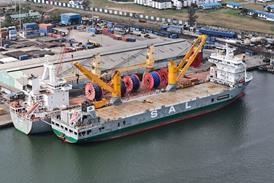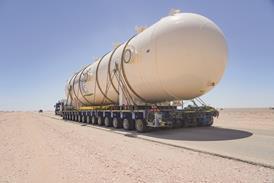April 19 - After an inauspicious start, 2012 could well be "another difficult and uncertain year for the maritime industry faced with the aftermath of the Costa Concordia, further problems in the euro zone, pirate attacks and increased sanctions," accordi
The latest Willis Marine Market Review reveals that the " hull market is in a state of flux following the Costa Concordia disaster in January. Some underwriters in the London insurance market, which will bear the majority of the estimated USD500 million hull claim, are adamantly refusing premium reductions or even flat renewals. However, unaffected underwriters in the Far East and Scandinavia are more open to negotiations.
"Marine liability underwriters meanwhile are hoping the disaster drives through a general hardening of rates, with many seeking 5 percent increases going forward."
However, as far as cargo insurance is concerned, the report notes that "buyers continue to enjoy the benefits of a soft market, achieving reductions in both premium and deductibles, as well as increases in limits, at little or no additional cost. Despite ever-dwindling returns to insurers, competition for business remains fierce with a flurry of new entrants creating excess capacity."
Piracy remains a major concern, as cargo underwriters continue to be affected by what Willis said "continues to blight the shipping industry with no clear resolution in sight." This is despite the fact that "security measures taken by ship-owners are increasingly effective with less than 20 percent of attacks successful in 2011." However, the report notes, "this has only served to increase the demands and expectations of those attacks that do occur with total ransoms increasing 77 percent from 2010."
Alistair Rivers, CEO of Willis Global Marine, commented: "For many marine insurers the year began badly with the loss of the Costa Concordia cruise liner. It was a timely reminder that 100 years on from the loss of the Titanic, disasters on this scale are still possible despite all the industrial and technological advancements. But while this loss may have stiffened the hull market, the long term impact is questionable. The P&I and Liability aspects of this loss will be of far greater significance to insurers as matters evolve throughout the year.
"However, a truly hard market is a mirage as long as capital providers are prepared to tolerate marginal returns from their hull and machinery book. These are difficult times for the maritime industry: world shipping is in recession; the economic turmoil continues to dampen demand; pirates are seizing property and crew; and increased sanctions demand further resources and attention. But maritime trade has seen and overcome similar challenges in the past and the entrepreneurial spirit that drives the industry remains intact."
The Marine Review describes this year's February P&I renewals as "disproportionately confrontational and protracted as ship-owners operating in one of the worst economic environments for a generation contested even inflationary increases from Clubs. On average, rate increases of 4 percent were achieved.
"Excess capacity in the Asian marine insurance market is putting pressure on rates as local and foreign insurers compete for market share. Asia is now home to around half of the world's merchant fleet, 14 of the top 20 ports and three of the largest ship building nations.
"In the commodity insurance market, underwriters are responding to commodity price volatility by tightening clauses and scrutinizing policy wordings with prices edging up for technically unsound risks.
















